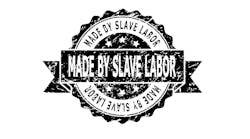A six-month long pilot program that allows employers to self-report their own violations of wage and hour regulations was launched on March 6 by the U.S. Department of Labor (DOL).
Called the Payroll Audit Independent Determination (PAID) initiative, the program is designed to encourage resolution of violations of minimum wage and overtime rules while sparing employers the costly litigation such violations can create, including the threat of double damages and attorneys’ fees often imposed in settlements stemming from both government audits and wage and hour lawsuits, which are at an all-time high.
Employers with a history of wage and hour violations cannot participate in the program, nor can it be used by employers for the purpose of resolving existing DOL Wage and Hour Division (WHD) audits or investigations, litigation or arbitration. In addition, PAID only addresses unintentional violations that have been discovered, reported and corrected by the employer.
For example, the PAID program can be effectively used to resolve violations based on alleged “off-the-clock” work, failures to pay overtime, or misclassification of employees as exempt from the FLSA’s minimum wage and overtime requirements, notes attorney Mary Elizabeth Davis of the law firm of LeClairRyan.
Employers will be required to make 100% payment of all back wages found to be due to their workers. Those who are prepared to work proactively with WHD won’t be required to pay liquidated damages or civil monetary penalties.
But there are limits to the benefits for employers, and potentially serious downsides to participating in the program, according to Davis. For example, after violations are reported to WHD, there is no obligation for it to accept the employer into the PAID program.
Employees who accept payment under the PAID program also must execute a limited release of the federal violations. In addition, if individual employees choose not to accept payment, they retain a private right of action. The limited release will be tailored to waive only the identified violations for the time period for which the employer is paying the back wages.
Although not specifically addressed by WHD to date, it appears that employees who accept payment under the PAID program may not be required to give up their state law claims for the specific, identified violation that was granted settlement under federal law.
The Devil in the Details
Caroline J. Brown, an attorney with the law firm of Fisher Phillips, warns, “DOL's proposal to provide a less adversarial avenue for employers to achieve compliance is a welcome one, and it might be very tempting to employers who have struggled with resolving claims outside of court. Unfortunately, while in many ways preferable to private litigation, the benefits of the program are to be determined still.”
The proposed six-month pilot period does not provide an employer with much time to consider whether it will want to participate in the program before it has to initiate the self-audit process, she points out.
Brown doubts that employers can expeditiously resolve issues by using the program as an alternative to undergoing a DOL investigation. “The self-audit stage could be extensive, and the agency might significantly lengthen the process at the review stage,” she notes.
She stresses that there is no particular reason at this time to believe the process will be less burdensome than a WHD investigation. In fact, the only aspect guaranteed to move quickly is the payment of back wages, which are due by the end of the next full pay period after the division receives the employer’s summary of unpaid wages. “This is a much shorter timeframe than historically permitted in investigations, and simply might not be feasible,” Brown adds.
There also is the matter of what information will now be at the disposal of DOL for its own future use or that of any for other federal or state agencies with which it has agreements, and any member of the public who seeks it under a Freedom of Information Act request.
Proactively contacting a federal agency to admit liability could expose an employer to further scrutiny by DOL, says Gina M. Ameci, an attorney with the law firm of Buchanan Ingersoll & Rooney. For example, it is currently unclear if DOL will waive its right to re-audit the same period that has already been covered under a PAID program report.
Complicating matters has been the confusion surrounding overtime rules and salary limits for exempt personnel. Although the increases in salary limits and changes in occupational definitions imposed by the Obama-era DOL were overturned in court, the Trump DOL continues to look at the possibility of adopting more modest increases in the future.




